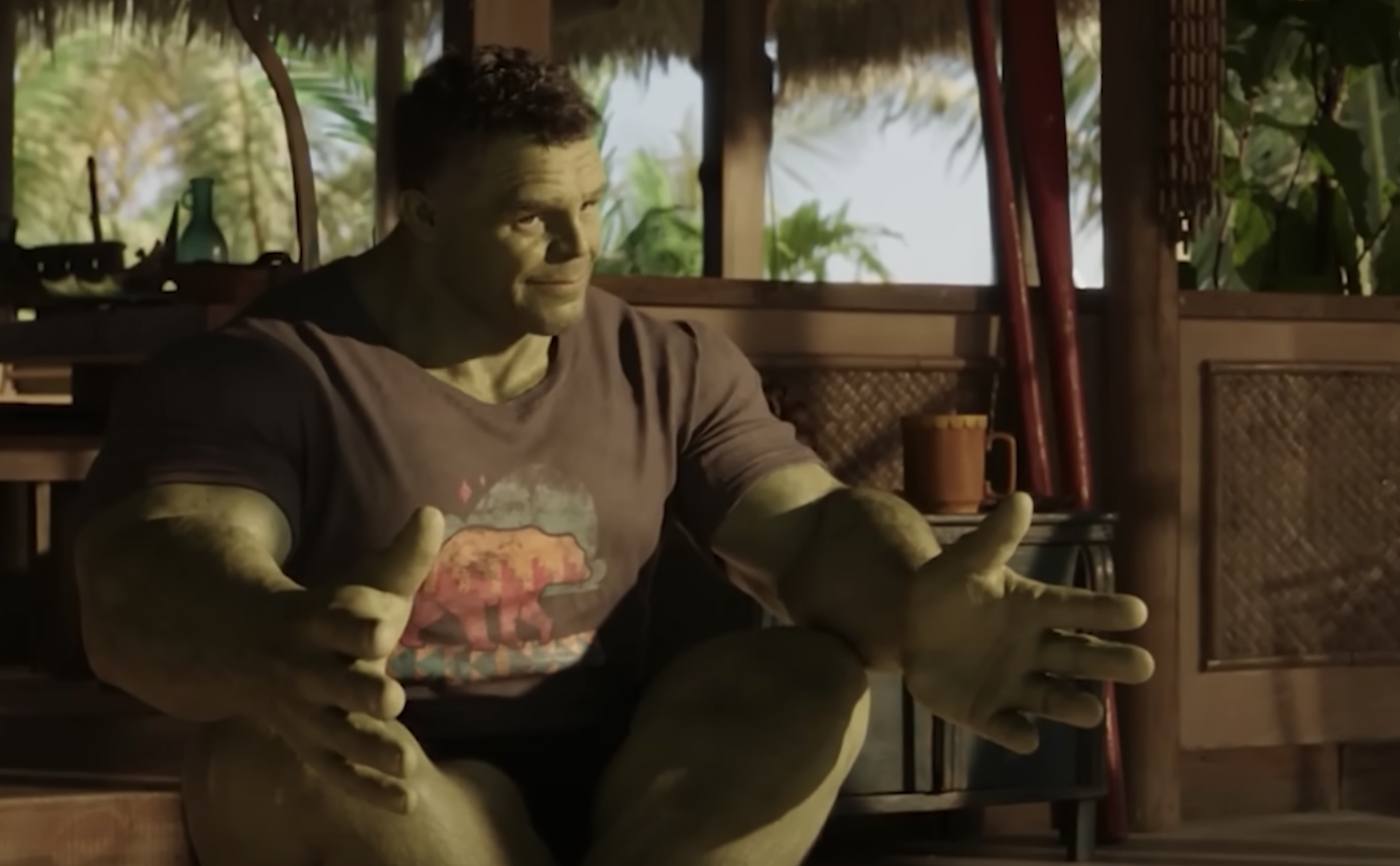
- Details
- By Neely Bardwell
In Marvel Studios’ new streaming TV show She-Hulk, actor Mark Ruffalo, who plays the Hulk, is featured in several scenes sporting T-shirts created by Native-owned company Ginew USA.
Ginew is North America’s first Native-owned denim company and is owned and operated by couple Amanda Bruegl (Oneida, Stockbridge-Munsee) and Erik Brodt (Ojibwe). In addition to running Ginew, both Bruegl and Brodt are full-time physicians.
Based in Portland, Ore., the company’s self-described “Native Americana” products are a fusion of Native American style with Ojibwe, Oneida and Stockbridge-Munsee design elements in heirloom-quality garments and goods from premium materials.
“We’re the only American Indian-owned denim brand that we know of, in the world,” Brodt explained in an interview with Native News Online. “We started kind of like a little bit of lightning in a bottle. My dad shot a buffalo for our wedding ceremony, and we didn’t want to give purchased gifts away, so we made buffalo belts for all the people that were in the wedding ceremony. We kind of became a brand overnight.”
The line has since been featured in Vogue, GQ, and now on She-Hulk. Brodt explains that Ruffalo advocated for the brand to be featured. The actor has proven to be a strong supporter of Native issues, showing up at Carlisle Indian School for a repatriation transfer event and joining the protests at Standing Rock in 2016.
“Mark Ruffalo had reached out to us ahead of time and connected us with people on his staff or team to get some designs of T-shirts, and they really kind of took it from there,” Brodt said. “I think it was his advocacy that got us included in The Hulk’s wardrobe.
Every piece of Ginew clothing is ethically made. Brodt described being at the Pendleton Woolen Mill factory when a Ginew blanket was being produced.
“Hearing the people at the factory gets so excited about our designs, and even people that see every single blanket that Pendleton makes and they’re like, ‘We are so happy to be working on this one because it’s different, there’s something that’s different about this one,’” Brodt expressed. “There’s Native people there. There’s first-generation immigrants there. There’s folks who’ve been three or four or five generations working together as families there, and to have them get excited about our product is so cool.”
Last month, Ginew secured a $500K investment from Raven Indigenous Capital Partners.
More Stories Like This
A Native American Heritage Month Playlist You Can Listen to All Year Long11 Native Actors You Should Know
Five Native American Films You Should Watch This Thanksgiving Weekend
Heavy metal is healing teens on the Blackfeet Nation
Over 150 Tribal Museums Participate in Fourth Annual Celebration of Native Life
Help us tell the stories that could save Native languages and food traditions
At a critical moment for Indian Country, Native News Online is embarking on our most ambitious reporting project yet: "Cultivating Culture," a three-year investigation into two forces shaping Native community survival—food sovereignty and language revitalization.
The devastating impact of COVID-19 accelerated the loss of Native elders and with them, irreplaceable cultural knowledge. Yet across tribal communities, innovative leaders are fighting back, reclaiming traditional food systems and breathing new life into Native languages. These aren't just cultural preservation efforts—they're powerful pathways to community health, healing, and resilience.
Our dedicated reporting team will spend three years documenting these stories through on-the-ground reporting in 18 tribal communities, producing over 200 in-depth stories, 18 podcast episodes, and multimedia content that amplifies Indigenous voices. We'll show policymakers, funders, and allies how cultural restoration directly impacts physical and mental wellness while celebrating successful models of sovereignty and self-determination.
This isn't corporate media parachuting into Indian Country for a quick story. This is sustained, relationship-based journalism by Native reporters who understand these communities. It's "Warrior Journalism"—fearless reporting that serves the 5.5 million readers who depend on us for news that mainstream media often ignores.
We need your help right now. While we've secured partial funding, we're still $450,000 short of our three-year budget. Our immediate goal is $25,000 this month to keep this critical work moving forward—funding reporter salaries, travel to remote communities, photography, and the deep reporting these stories deserve.
Every dollar directly supports Indigenous journalists telling Indigenous stories. Whether it's $5 or $50, your contribution ensures these vital narratives of resilience, innovation, and hope don't disappear into silence.
 The stakes couldn't be higher. Native languages are being lost at an alarming rate. Food insecurity plagues many tribal communities. But solutions are emerging, and these stories need to be told.
The stakes couldn't be higher. Native languages are being lost at an alarming rate. Food insecurity plagues many tribal communities. But solutions are emerging, and these stories need to be told.
Support independent Native journalism. Fund the stories that matter.
Levi Rickert (Potawatomi), Editor & Publisher

